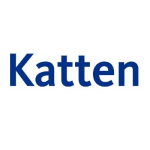In In re TracFone Wireless, Inc., the Trademark Trial and Appeal Board (TTAB) issued yet another decision finding that a particular designation fails to function as a mark – the subject of over 21% of precedential rulings this year. These decisions highlight the importance of brand owners, marketing teams, advertising departments and legal counsel coordinating effectively.
TracFone Wireless, Inc. (TracFone) sought registration on the Principal Register of the proposed mark "unlimited carryover" covering various telecommunication services with a claim of acquired distinctiveness, after owning a registration for the same mark on the Supplemental Register since 2010. During prosecution, however, a USPTO examiner contended that "unlimited carryover", as shown on the specimen, failed to function as a mark because it did not identify the source of the services and distinguish it from others. The examiner found that due to its manner of use, and particularly, because of its placement on the specimen, the wording was "informational and common." After the examiner maintained the refusal to register, TracFone appealed the refusal to the TTAB.
The "critical inquiry" in determining whether a designation functions as a mark is how the designation would be perceived by the relevant public. To make this determination the TTAB looks to the specimens and other evidence of record showing how the designation is actually used in the marketplace. If a designation does not operate to indicate the source or origin of goods or services, and thus fails to distinguish them from those of others, it does not meet the statutory definition of a trademark and may not be registered, regardless of claims of acquired distinctiveness. Accordingly, the TTAB examined TracFone's specimen, dictionary definitions and marketplace uses to determine whether the phrase "unlimited carryover" would be perceived as a source indicator.
On appeal, TracFone pointed out to the TTAB that it was unaware of any other telecommunications providers using "unlimited carryover" as a source identifier, and that the phrase is not a common term nor used in everyday marketing. TracFone averred that the specimen for its registration on the Supplemental Register was identical to the one at issue, arguing: "This shows that not only is [unlimited carryover] capable of serving as a service mark, it actually does function as a service mark, as it is shown on the specimen of use."
Affirming the refusal to register on the Principal Register, the TTAB deemed TracFone's arguments "circular," explaining that TracFone's registration on the Supplemental Register is more than eight years old and consumer perception of "unlimited carryover" may have changed with the passage of time. As for TracFone's specimen, the TTAB noted that the wording "unlimited carryover" was displayed last in a list of features boasting "No-Contract Plans with Talk, Text, Data and Unlimited Carryover® starting at $15," and set in the midst of "other clearly informational matter, far from the TRACFONE logo." The TTAB held that the phrase would be perceived as part of the description of services rather than as a mark designating the source of the services.
The lesson is that if a brand owner intends to invest in and display its mark to the public, input from counsel on the appearance and placement of a mark in printed materials, among other factors, can save an otherwise successful mark from failing to function as a trademark.

|

|
Karen Artz Ash |
Jerry Jakubovic |
Katten Muchin Rosenman LLP
575 Madison Avenue
New York, NY 10022-2585
United States
Tel: +1 212 940 8554
Fax: +1 212 940 8671












